Survivor Profiles: Rodi Glass
It is such an exciting time for me as a survivor to have our very own museum to visit. To be a survivor is a miracle and to be able to have this museum to go to and work for is a blessing.
Rodi Glass
Her Story:
Rodi Waterman Glass was born into a large family in Amsterdam in 1936. Her mother, Sophie Kaiser Waterman, was one of six siblings and her father, Meyer Waterman, and his twin brother were the youngest of seven. Her maternal grandfather was a shoemaker who wanted to open his own business but was instructed not to because the Netherlands was in a recession. He and his wife decided to move to London, where they started their business. They lived there until Rodi’s mother was 16, when they returned to Amsterdam and her grandfather opened new businesses. By the time Rodi was born in 1936, her grandfather owned two stores and a wholesale shop.
When Rodi was just 4 years old, Germany invaded the Netherlands, burning Rotterdam to the ground and then marching into other cities, including Amsterdam. “I still remember them marching in. We weren’t allowed to go out or stand out. We had to put shades down, but we peeked out and I can still, in my mind, hear the marching of the boots goose stepping down the street.”
Life changed after that. All Jews in the Netherlands had to register their names and addresses. Germans then started issuing a series of rules and laws including curfews and restricting Jews’ ability to have money or other valuables, attend school, or be in public spaces.
In September 1942, the Dutch police came to Rodi’s home late at night and told her family they needed to leave. They were loaded onto a truck and taken to Central Station in Amsterdam, where they were put on a train to Westerbork transit camp. After several days, they were called up to be counted. When they approached the table of Nazi officers, one recognized Rodi’s mother; when their name came up on the list to be deported to a killing center, he scratched it off.
Back in Amsterdam, Nazis were taking over Jewish businesses, including theirs. Her mother was assigned to work for the Dutch Nazi sympathizer who was given control of her family’s business and quietly pocketed some of the money during this time. She used that money to buy food on the black market.
Meanwhile, Rodi’s uncle had a connection to buy a document, called a sperre, that would prevent a person from being sent East, but it cost money which the family had to give up when the Germans invaded. Luckily, Rodi’s grandfather had hidden some money away with business associates and was able to buy passes for the entire family. When the family was rounded up and sent to the Jewish Theater in Amsterdam, the sperre prevented them from being sent back to Westerbork, and they were released.
During this time, Rodi and her family realized that most of her father’s family had been taken away and killed. From May to September 1943, the Nazis sealed the Jewish quarter of Amsterdam and rounded up Jews for deportation. Rodi’s family was once again sent to Westerbork.
There were rumors that having foreign citizenship could get you sent to a better camp. Rodi’s mother’s youngest sister had a valid English passport and got permission for herself and the family to go to an internment camp in Vittel, France, instead of Bergen-Belsen. They remained in Vittel until it was liberated in September 1944. “It was a wonderful day. They [The liberators] were so wonderful and beautiful and sweet and kind. Everybody was overjoyed.”
After the Americans took control of the camp and set up a base there, the people in the camp were moved to another town. They lived in hotels and were given food by the Red Cross. Rodi was enrolled in a school in France but had not had any previous schooling and did not know French.
When the Netherlands was liberated in May 1945, Rodi’s mother got permission from the head of the army to go to the Dutch consulate in Paris and get approval for the family to return to Amsterdam. They took a train back and arrived at the same station where they were arrested for the first time. Upon arrival, they were given some money and placed in former orphanages. Rodi was also enrolled in a school set up by the Dutch government to help children catch up on the years of education that had been denied to them.
In Amsterdam, the family business was still operating under a Dutch Nazi sympathizer. Rodi’s father threw him out and they took back control of the business. While the family rebuilt the store and life returned to normal, her mother’s sisters moved to Chicago.
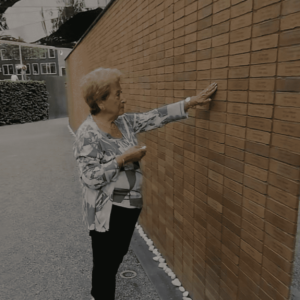
In 1950, her aunts wrote a letter telling the family to come to the US, and in April 1951, Rodi, her parents, and grandparents arrived in New York. They stayed there for a few days before moving to Chicago.
Rodi went to Hyde Park High School and in 1955 married her husband, Marvin. The two were married for 62 years and have three children, six grandchildren, and four great grandchildren. In 2022, Rodi returned to Amsterdam to record her story. Her VR film, Walk to Westerbork, can be seen in the Museum’s virtual reality gallery, The Journey Back: A VR Experience.
“Life turned out beautiful for me. Luck played a big part in my life. I’ve been a very lucky person. Luck for surviving. Luck meeting the right people. Luck for having a beautiful family and wonderful friends.”
Learn More:
Coffee with a survivor facebook live session Chicago Tribune article Hostages in Vittel: The Rodi Glass Collection USHMM testimony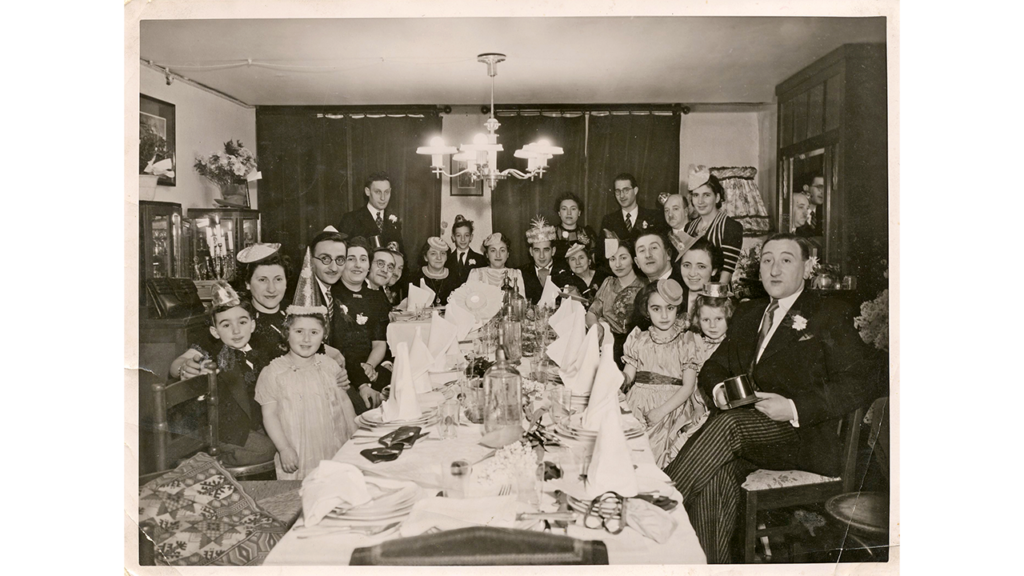
Rodi Glass and her family gathered together for a family member’s wedding in 1940. Only four people pictured survived the war.
View this artifact >>
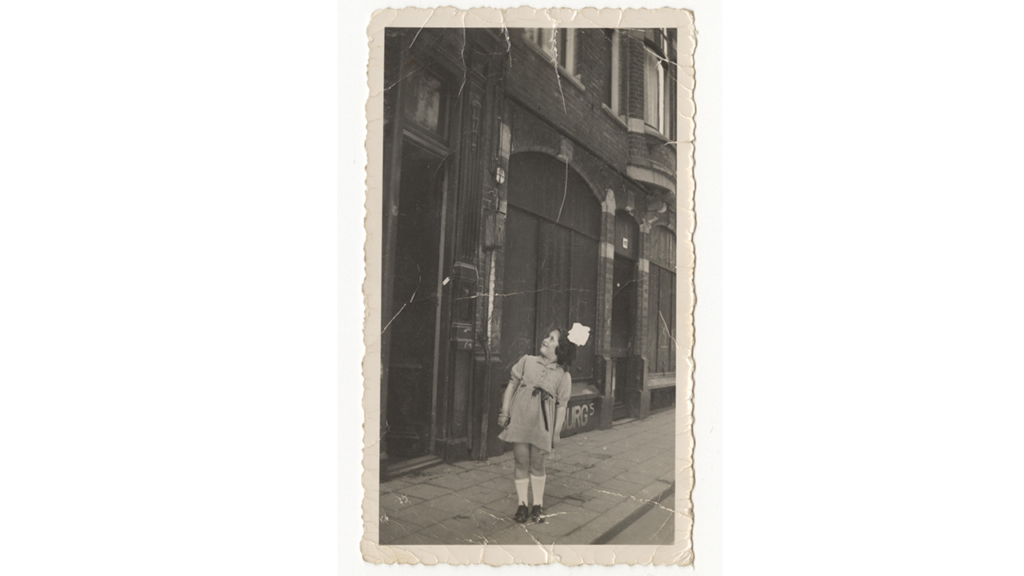
Rodi Glass standing outside her family home in Amsterdam, Netherlands, 1940.
View this artifact >>
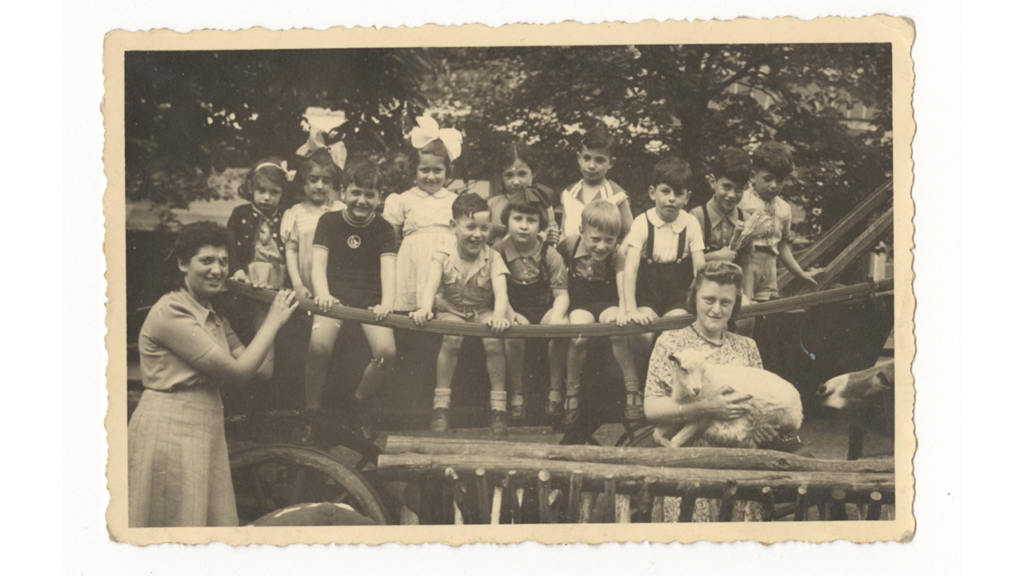
Rodi Glass (pictured center wearing a large white bow) with her class on a field trip to the zoo in Amsterdam, Netherlands, 1940. She and one other boy in the photo were the only ones to survive the war.
View this artifact >>
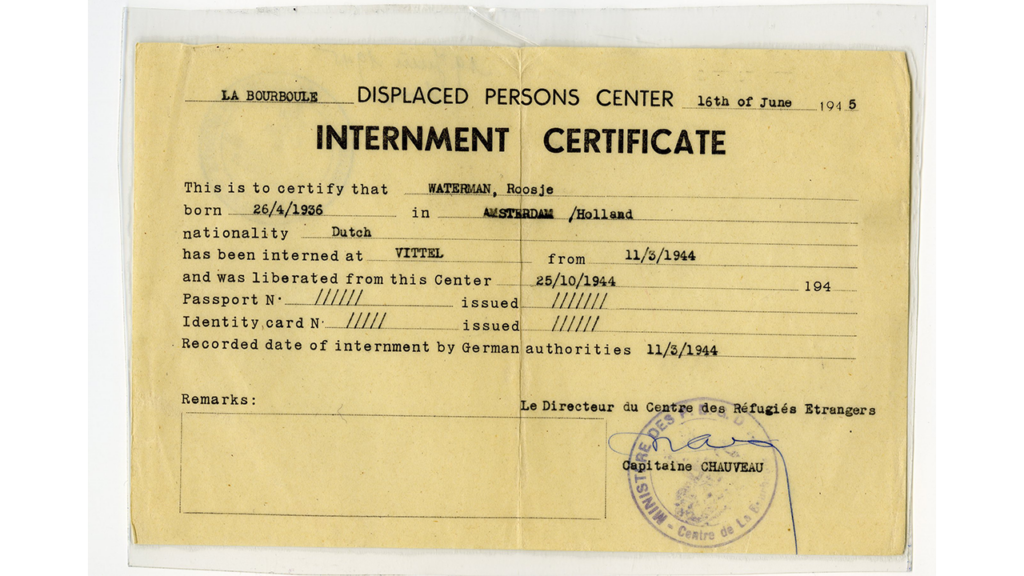
Internment Certificate for Roosje Waterman (Rodi Glass) stating her dates of interment in Vittel camp, issued by the Displaced Persons Center, La Bourboule, France, June 16, 1945.
View this artifact >>
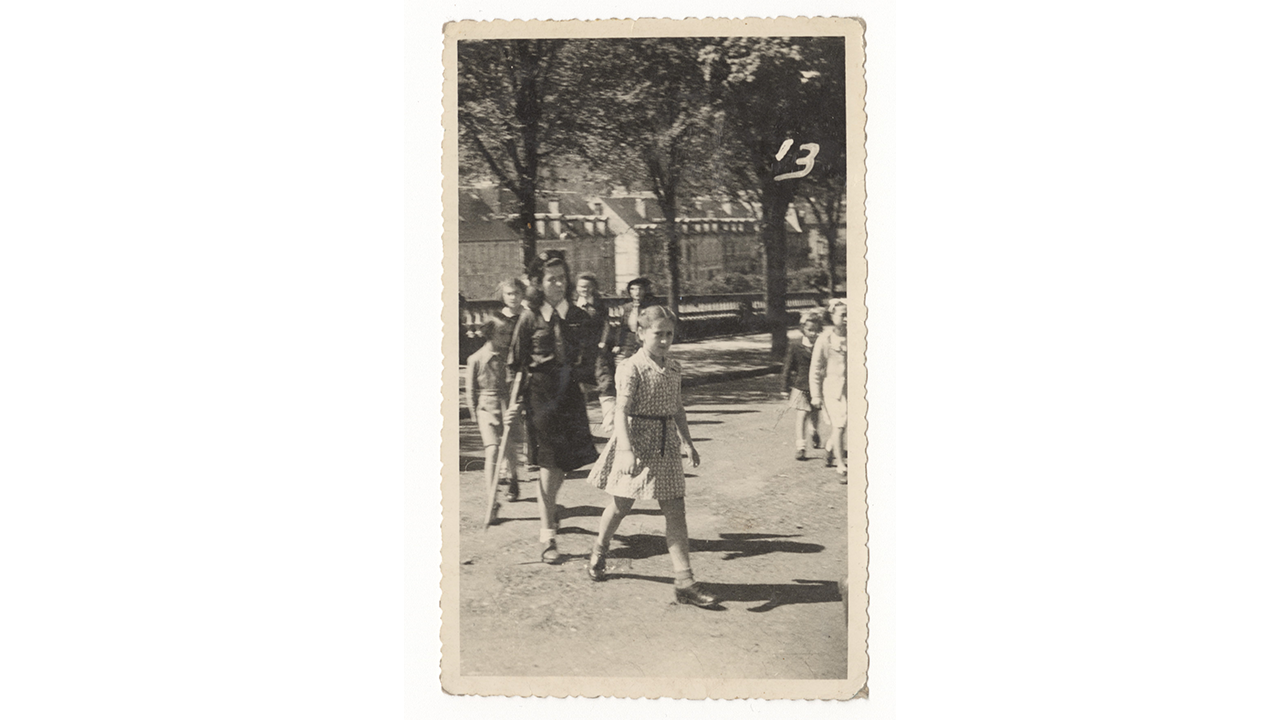
Rodi Glass on VE day in La Bourboule, France on May 8, 1945.
View this artifact >>
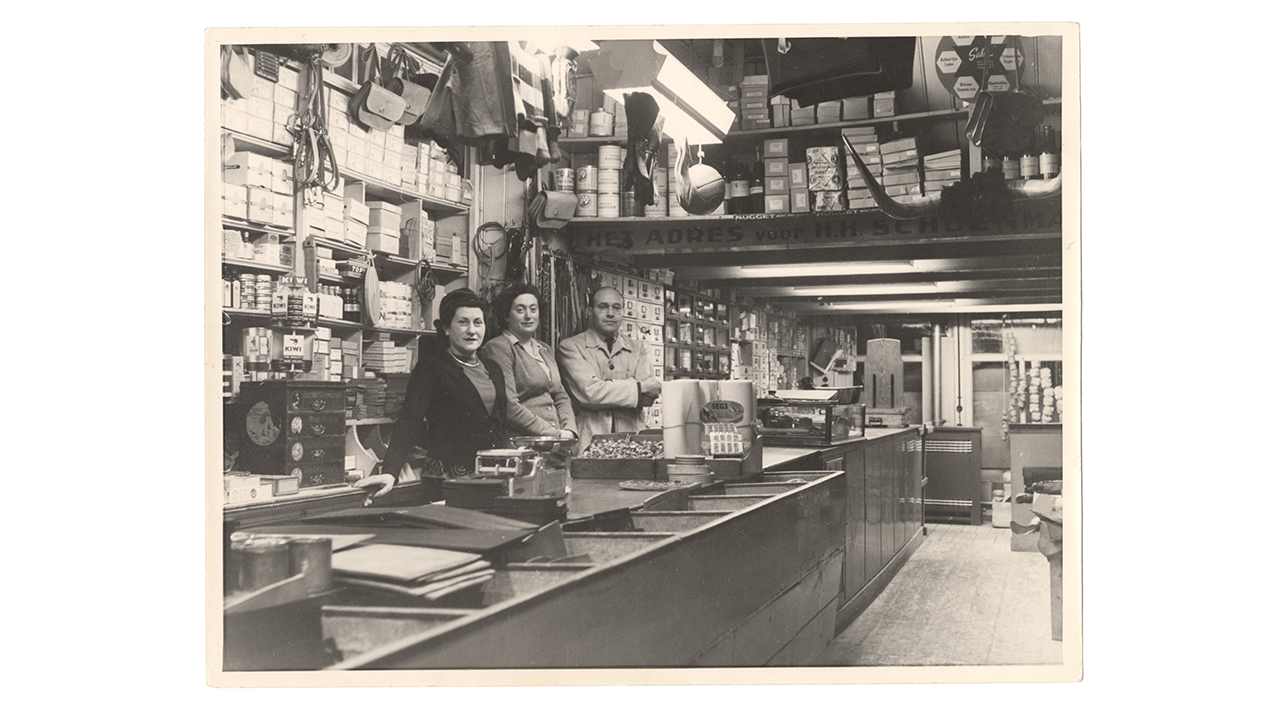
Rodi’s family in their store in Amsterdam, post-1945.
View this artifact >>
